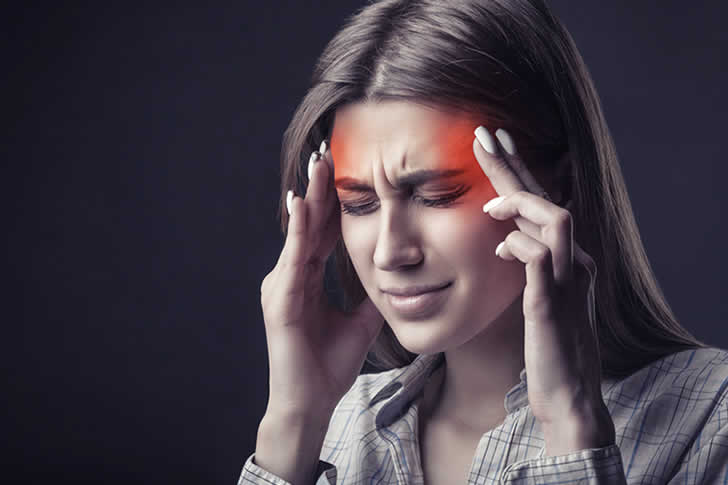Why Effective Migraine Treatment Matters
Migraines can be severely disabling, affecting your quality of life, work productivity, and overall well-being. Finding an effective treatment plan is crucial for managing symptoms and preventing future attacks. Here’s why effective treatment is important:
- Pain Relief: Effective treatments can significantly reduce or eliminate the pain associated with migraines.
- Prevention: Preventative treatments can decrease the frequency and intensity of migraine attacks.
- Improved Quality of Life: Managing migraines effectively allows for better day-to-day functioning and reduces the impact on personal and professional life.
- Customized Care: With various treatment options available, a tailored approach ensures that the specific needs and triggers of the individual are addressed.
- Reduction in Healthcare Costs: Proper treatment can reduce the need for emergency care and hospitalization, ultimately lowering healthcare costs.
How to Find the Best Treatments for Migraines
To find the best migraine treatments, consider these strategies:
- Consult a Neurologist: Specialists can provide a comprehensive diagnosis and recommend treatments tailored to your type of migraine.
- Evaluate Medication Options: There are several types of medications available, including abortive (acute) treatments like triptans and preventative medications such as beta-blockers, antidepressants, and anti-seizure drugs.
- Consider Lifestyle Modifications: Identifying and avoiding migraine triggers, maintaining a regular sleep schedule, and managing stress can help reduce the frequency of migraines.
- Explore Alternative Therapies: Acupuncture, biofeedback, and cognitive-behavioral therapy (CBT) are alternative treatments that have shown promise in managing migraines.
- Stay Updated on New Treatments: Keep an eye on the latest treatments, such as CGRP inhibitors, which are newer medications specifically designed for migraine prevention.
Common Questions and Answers
Q1: What are the most effective medications for acute migraine treatment?
A1: Triptans are often considered the most effective class of medications for acute migraine relief. Other options include NSAIDs, ergotamines, and newer CGRP inhibitors.
Q2: Can lifestyle changes help reduce the frequency of migraines?
A2: Yes, lifestyle changes such as maintaining a regular sleep pattern, staying hydrated, avoiding known triggers, and managing stress can significantly reduce migraine frequency.
Q3: Are there any non-medication treatments that can help with migraines?
A3: Yes, non-medication treatments such as acupuncture, biofeedback, and cognitive-behavioral therapy (CBT) have been found to help in reducing the frequency and severity of migraines.
Example Data on Migraine Treatment Options
is a comparison of various migraine treatment options, highlighting their effectiveness, common side effects, and cost.
| Treatment Type | Effectiveness (%) | Common Side Effects | Cost Range ($/month) | Usage Frequency | Insurance Coverage (%) |
|---|---|---|---|---|---|
| Triptans (e.g., Sumatriptan) | 70-80 | Drowsiness, dizziness, nausea | 30-100 | As needed | 80-90 |
| NSAIDs (e.g., Ibuprofen) | 50-60 | Stomach upset, ulcers | 10-50 | As needed | 70-80 |
| Beta-blockers (e.g., Propranolol) | 50-60 | Fatigue, dizziness | 10-30 | Daily | 70-90 |
| Antidepressants (e.g., Amitriptyline) | 50-60 | Dry mouth, drowsiness, weight gain | 10-40 | Daily | 70-90 |
| Anti-seizure drugs (e.g., Topiramate) | 50-60 | Weight loss, cognitive impairment | 20-50 | Daily | 70-85 |
| CGRP inhibitors (e.g., Aimovig) | 70-80 | Injection site reactions, constipation | 600-700 | Monthly | 60-80 |
| Botox injections | 60-70 | Neck pain, stiffness | 500-700 | Quarterly | 60-80 |
| Acupuncture | 40-60 | Minimal | 60-150 | Weekly | 0-50 |
| Biofeedback | 50-70 | None | 50-100 | Weekly | 0-50 |
| Cognitive-behavioral therapy (CBT) | 50-70 | None | 80-150 | Weekly | 0-50 |
Recommended Resources for Finding Migraine Treatments
For more detailed information and to explore the best treatments for migraines, visit the following websites:
- https://www.migraineresearchfoundation.org
- https://www.webmd.com/migraines-headaches
- https://www.mayoclinic.org
These resources provide comprehensive information on treatment options, patient support, and the latest research to help you manage your migraines effectively.












Recent Comments